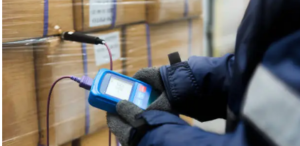Cold stores facilities Adelaide preserve food, pharmaceuticals and other perishable goods by maintaining them at specific temperatures. Different foods require different temperatures to keep quality.
 Refrigeration systems and equipment used in cold storage warehouses must be regularly serviced and upheld for best performance, failing which could result in product loss or other problems.
Refrigeration systems and equipment used in cold storage warehouses must be regularly serviced and upheld for best performance, failing which could result in product loss or other problems.
Temperature Control
Cold stores facilities Adelaide use advanced refrigeration systems and temperature controls to create and maintain specific cold temperatures for perishable products, helping prevent bacterial growth, slow enzymatic breakdown, reduce product contamination risks and preserve nutritional values and quality during transport and distribution.
Finding the Perfect Warehouse Location
Select a cold storage warehouse close to your suppliers, customers and distribution channels to minimise logistics and delivery time delays that could affect delivery dates. Also, ensure your chosen cold storage warehouse offers sufficient infrastructure and equipment that meet operational needs, such as well-maintained industrial refrigeration systems, adequate insulation and sophisticated temperature monitoring systems.
Cold storage warehouses consume abundant electricity to power their refrigeration systems and other specialised equipment, so selecting an energy-efficient facility featuring LED lighting and advanced insulation materials can significantly cut energy consumption costs and operational expenses.
Searching for a cold storage warehouse that provides integrated tracking solutions will allow for automated inventory tracking and increased transparency within the supply chain. Furthermore, such solutions enable businesses to meet regulatory compliance requirements by recording real-time storage conditions, creating accountability and building supply chain trust.
Equipment
Cold storage facilities require similar specialised equipment as cleanrooms to efficiently and safely handle products, including high-quality doors and insulation to reduce exposure from outside elements, refrigeration systems and monitoring devices, energy efficient facilities with the capacity to reduce costs effectively, product traceability so customers can quickly locate their items if lost, as well as an energy monitoring system capable of rapidly responding if they become lost or misplaced.
Worker safety is another concern with cold storage facilities, as exposure to low temperatures can have detrimental health effects on employees. Therefore, many companies opt to automate as much of their storage and handling processes as possible – for instance, with Top Industries’ inline and spacer retrievers that enable operators to insert or remove freezer spacers quickly compared with similar solutions on the market.
Cold stores facilities Adelaide should have robust inventory control systems capable of tracking products on a first-in, first-out basis and using advanced tracking features for managing inventory efficiently. Furthermore, these systems should allow expanded visibility into inventory levels and integration with warehouse management systems for quality issues like staleness or contamination prevention.
An effective cold storage facility should include emergency power systems to respond to power outages or disasters that could affect temperature-sensitive products and result in significant financial losses. Ask your prospective logistics provider what backup power systems they have to keep the temperature down while safeguarding customer’s products against spoilage.
Safety
Cold storage warehouses often pose workers with numerous temperature-related health and safety hazards. Immediate concerns include discomfort, manual dexterity loss and feelings of numbness in hands, feet, face and nose. Long-term exposure can result in frostbite or hypothermia if exposed for too long.
Cold store warehouses employ ammonia-based refrigeration systems that may pose lung and skin risks. PCBUs should educate their workers on their facility’s hazardous materials policies and procedures, ensure employees wear appropriate clothing when entering cold rooms, schedule regular health screenings for staff members to determine their physical fitness for this type of work, provide external bathroom trailers to truck drivers as an alternative solution to warehouse bathrooms, thus decreasing COVID-19 transmission risks.
Records
Proper storage is essential to their longevity, with vinyl records enjoying a revival. Cold environments can damage records unexpectedly, especially those exposed to temperatures below freezing; this exposure may cause their vinyl record surface to become brittle or attract moisture that damages both its contents and cases. Luckily, steps can be taken to minimise cold storage’s damaging effects.
As demand for cold storage warehouses rises, companies are turning more and more frequently to third-party logistics providers for managing their refrigerated warehousing logistics. It allows them to focus on their core business while simultaneously cutting transportation costs, assuring product quality and reducing food waste by decreasing spoilage rates and optimising shelf life.
